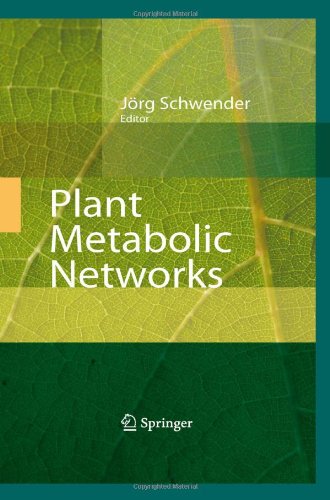

Most ebook files are in PDF format, so you can easily read them using various software such as Foxit Reader or directly on the Google Chrome browser.
Some ebook files are released by publishers in other formats such as .awz, .mobi, .epub, .fb2, etc. You may need to install specific software to read these formats on mobile/PC, such as Calibre.
Please read the tutorial at this link: https://ebookbell.com/faq
We offer FREE conversion to the popular formats you request; however, this may take some time. Therefore, right after payment, please email us, and we will try to provide the service as quickly as possible.
For some exceptional file formats or broken links (if any), please refrain from opening any disputes. Instead, email us first, and we will try to assist within a maximum of 6 hours.
EbookBell Team

4.8
104 reviewsPlant Metabolic Networks
Edited by Jörg Schwender
Plants are the basis for human nutrition and are of increasing interest for the chemical industry as a source of chemical feed stocks. Fuels derived from plant biomass will increasingly replace fossil fuels in the future. In order to increase crop productivity, design new plant products, and create new energy crops, there is need for methods of qualitative and quantitative analysis of metabolism which are able to guide the rational re-design of metabolic networks.
In Plant Metabolic Networks recent advances in qualitative and quantitative analysis of metabolism are summarized to give an overview of the current state of knowledge. The book can be divided into three parts: First an introductory chapter (chapter 2), relating to the unique complexity of plant metabolism. The following three chapters describe how to analyze the components that make up the metabolic network, metabolites and enzymes. Finally, chapters 6 to 11 are devoted to network analysis and modeling. Contributions from different expert authors have been assembled to give a current view on plant metabolic networks, from the analysis of the molecular parts to approaches of mathematical modeling of plant metabolic networks at the cellular level.
Jörg Schwender received his Ph.D. in Biology in 1999 from the University of Karlsruhe / Germany. He is currently associate scientist in the biology department of Brookhaven National Laboratory, New York, USA. His main research interests are metabolic flux analysis and related approaches of modeling and analysis of metabolic networks in plants.